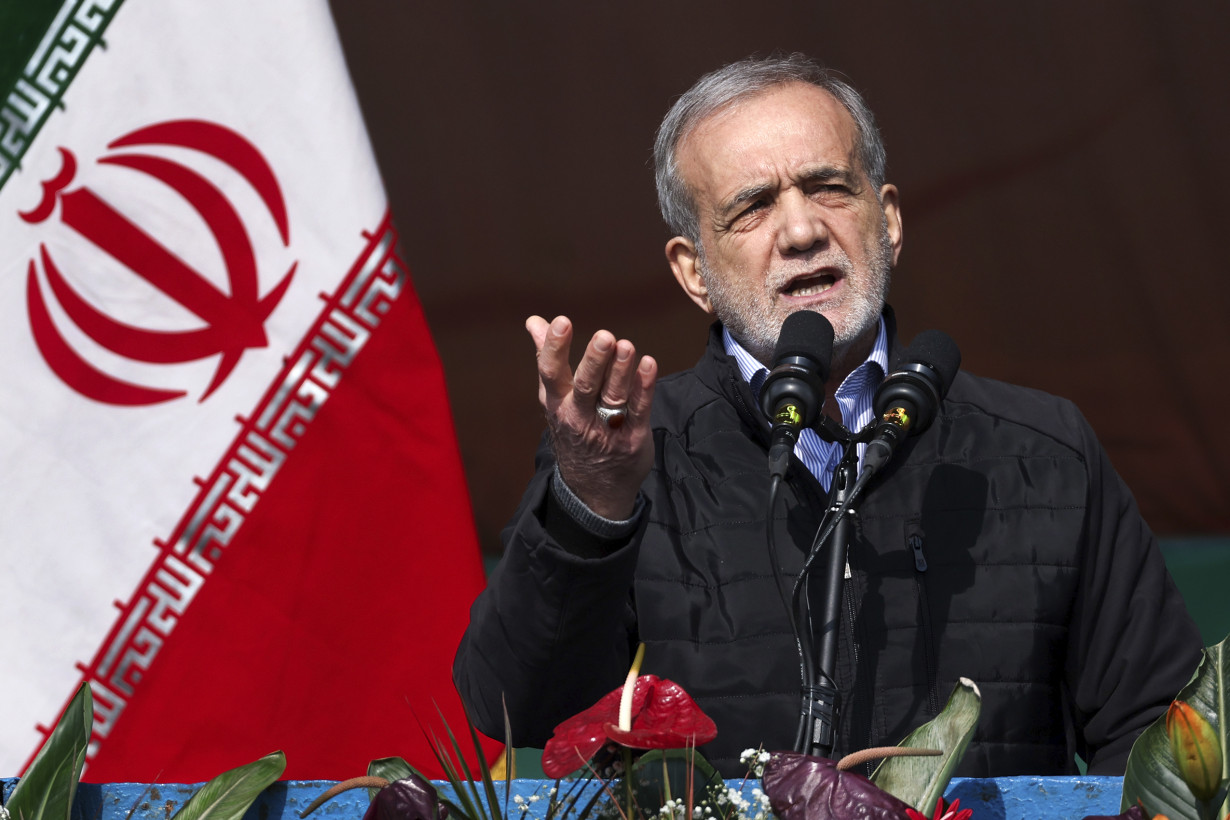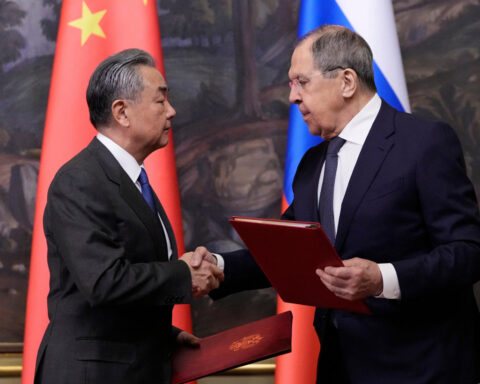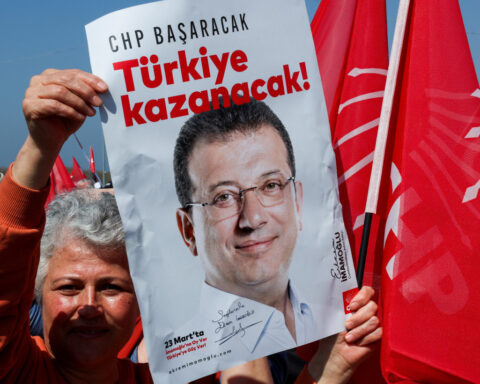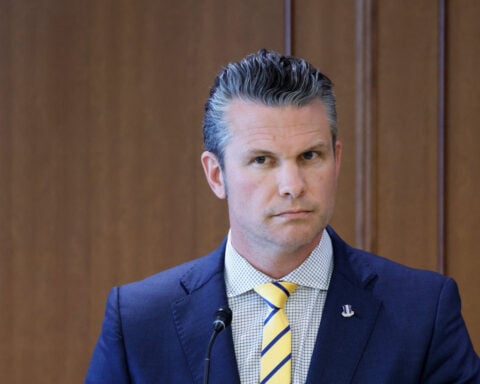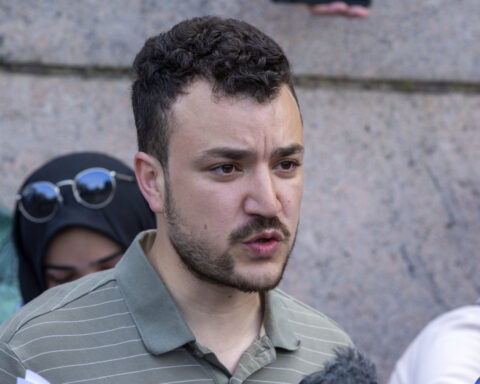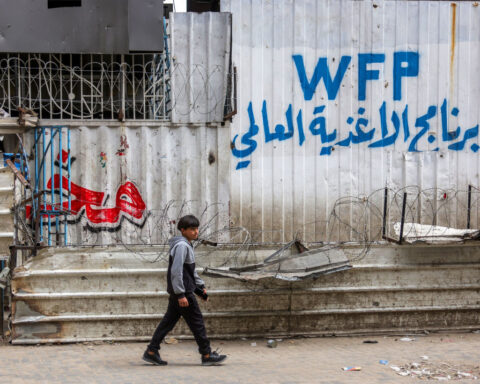DUBAI, United Arab Emirates (AP) — Iran's president said Sunday that the Islamic Republic rejected direct negotiations with the United States over its rapidly advancing nuclear program, offering Tehran's first response to a letter that U.S. President Donald Trump sent to the country's supreme leader.
President Masoud Pezeshkian said that Iran's response, delivered via the sultanate of Oman, left open the possibility of indirect negotiations with Washington. However, such talks have made no progress since Trump in his first term unilaterally withdrew the U.S. from Tehran's nuclear deal with world powers in 2018.
In the years since, regional tensions have boiled over into attacks at sea and on land. Then came the Israel-Hamas war in the Gaza Strip, which saw Israel target militant group leaders across Iran's self-described "Axis of Resistance." Now, as the U.S. conducts intense airstrikes targeting the Iranian-backed Houthi rebels of Yemen, the risk of military action targeting Iran's nuclear program remains on the table.
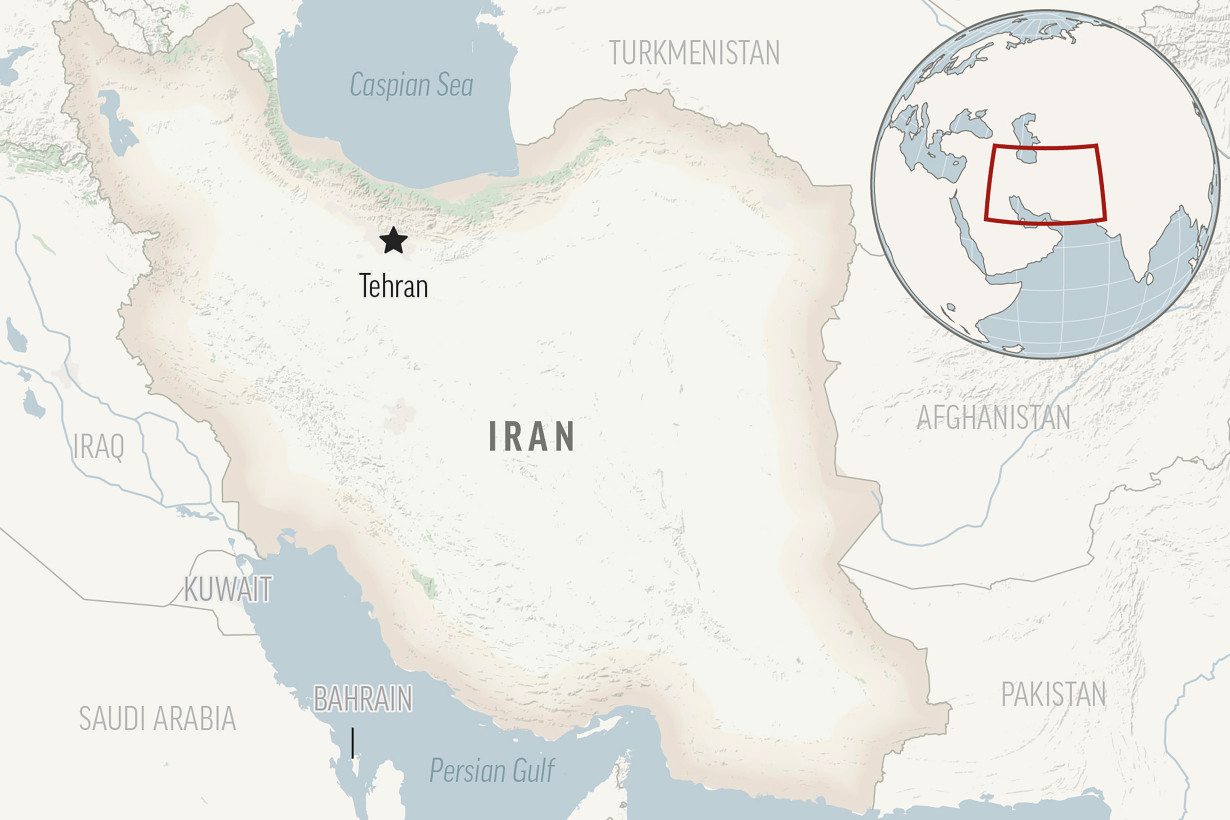
“We don’t avoid talks; it’s the breach of promises that has caused issues for us so far,” Pezeshkian said in televised remarks during a Cabinet meeting. “They must prove that they can build trust.”
The U.S. State Department, responding to Pezeshkian, said that “President Trump has been clear: the United States cannot allow Iran to acquire a nuclear weapon."
“The president expressed his willingness to discuss a deal with Iran,” it added. "If the Iranian regime does not want a deal, the president is clear, he will pursue other options, which will be very bad for Iran.”
Trump talked about dealing with Iran while flying from Florida to Washington on Sunday evening. “We’ll see if we can get something done,” he told reporters. “And if not, it’s going to be a bad situation.”
“I would prefer a deal to the other alternative which I think everybody in this plane knows what that is, and that’s never going to be pretty,” he said.
Iran's position hardens after Trump's letter
Having Pezeshkian announce the decision shows just how much has changed in Iran, since his election a half-year ago after he campaigned on a promise to reengage with the West.
Since Trump's election and the resumption of his “maximum pressure” campaign on Tehran, Iran's rial currency has gone into a freefall. Pezeshkian had left open discussions up until Iran's 85-year-old Supreme Leader Ayatollah Ali Khamenei came down hard on Trump in February and warned talks “are not intelligent, wise or honorable" with his administration. The Iranian president then immediately toughened his own remarks on the U.S.
Meanwhile, there have been mixed messages coming from Iran for weeks. Videos from Quds, or Jerusalem, Day demonstrations on Friday had people in the crowds instructing participants to only shout: “Death to Israel!” Typically, “Death to America” was also heard.
A video of an underground missile base unveiled by Iran's hard-line paramilitary Revolutionary Guard also showed its troops stepping on an Israeli flag painted on the ground — though there was no American flag as often seen in such propaganda videos.
But Press TV, the English-language arm of Iranian state television, published an article last week that included listing U.S. bases in the Middle East as possible targets of attack. The list included Camp Thunder Cove on Diego Garcia in the Indian Ocean, where the U.S. is basing stealth B-2 bombers likely being used in Yemen.
“The Americans themselves know how vulnerable they are,” warned Iranian parliamentary speaker Mohammad Bagher Qalibaf on Friday. "If they violate Iran’s sovereignty, it will be like a spark in a gunpowder depot, setting the entire region ablaze. In such a scenario, their bases and their allies will not be safe.”
However, Tehran's two recent direct attacks on Israel with ballistic missiles and drones caused negligible damage, while Israel responded by destroying Iranian air defense systems.
Iran's rejection is the latest in tensions over nuclear program
Trump's letter arrived in Tehran on March 12. Though announcing that he wrote it in a television interview, Trump offered little detail on what he exactly told the supreme leader.
“I’ve written them a letter saying, ‘I hope you’re going to negotiate because if we have to go in militarily, it’s going to be a terrible thing,’” Trump said in the interview.
The move recalled Trump’s letter-writing to North Korean leader Kim Jong Un in his first term, which led to face-to-face meetings, but no deals to limit Pyongyang’s atomic bombs and a missile program capable of reaching the continental U.S.
The last time that Trump tried to send a letter to Khamenei, through the late Japanese Prime Minister Shinzo Abe in 2019, the supreme leader mocked the effort.
Trump’s letter came as both Israel and the United States have warned they will never let Iran acquire a nuclear weapon, leading to fears of a military confrontation as Tehran enriches uranium at near weapons-grade levels of 60% purity — something only done by atomic-armed nations.
Iran has long maintained its program is for peaceful purposes, even as its officials increasingly threaten to pursue the bomb. A report in February, however, by the Vienna-based International Atomic Energy Agency, the U.N.’s nuclear watchdog, said that Iran has accelerated its production of near weapons-grade uranium.
Iran's reluctance to deal with Trump likely also takes root in his ordering the attack that killed Iranian Gen. Qassem Soleimani in a Baghdad drone strike in January 2020. The U.S. has said Iran plotted to assassinate Trump over that prior to his election this November, something Tehran denied though officials have threatened him.
___
Vahdat reported from Tehran, Iran. Associated Press writer Chris Megerian in Washington contributed.

 Trump has begun another trade war. Here's a timeline of how we got here
Trump has begun another trade war. Here's a timeline of how we got here
 Canada's leader laments lost friendship with US in town that sheltered stranded Americans after 9/11
Canada's leader laments lost friendship with US in town that sheltered stranded Americans after 9/11
 Chinese EV giant BYD's fourth-quarter profit leaps 73%
Chinese EV giant BYD's fourth-quarter profit leaps 73%
 You're an American in another land? Prepare to talk about the why and how of Trump 2.0
You're an American in another land? Prepare to talk about the why and how of Trump 2.0
 Chalk talk: Star power, top teams and No. 5 seeds headline the women's March Madness Sweet 16
Chalk talk: Star power, top teams and No. 5 seeds headline the women's March Madness Sweet 16
 Purdue returns to Sweet 16 with 76-62 win over McNeese in March Madness
Purdue returns to Sweet 16 with 76-62 win over McNeese in March Madness
